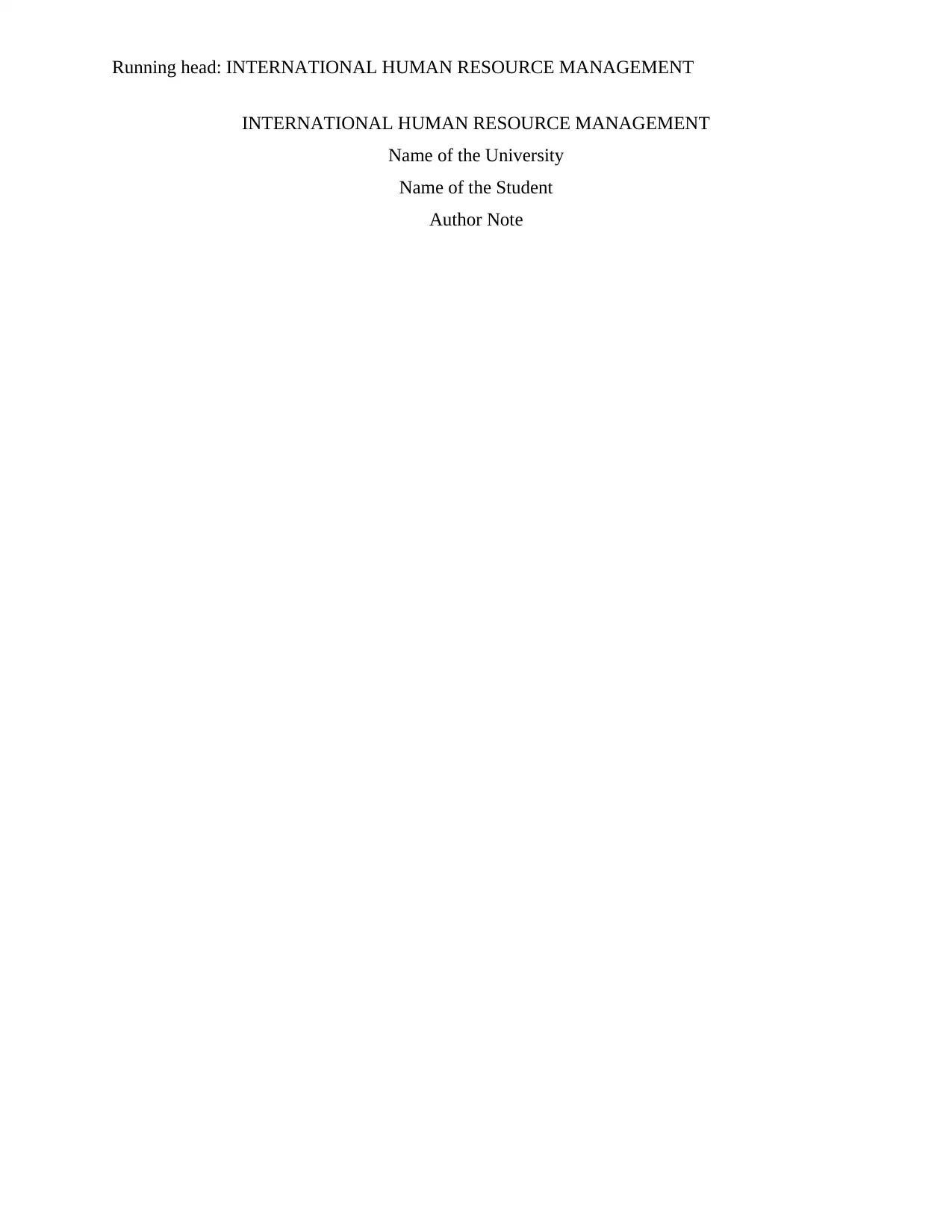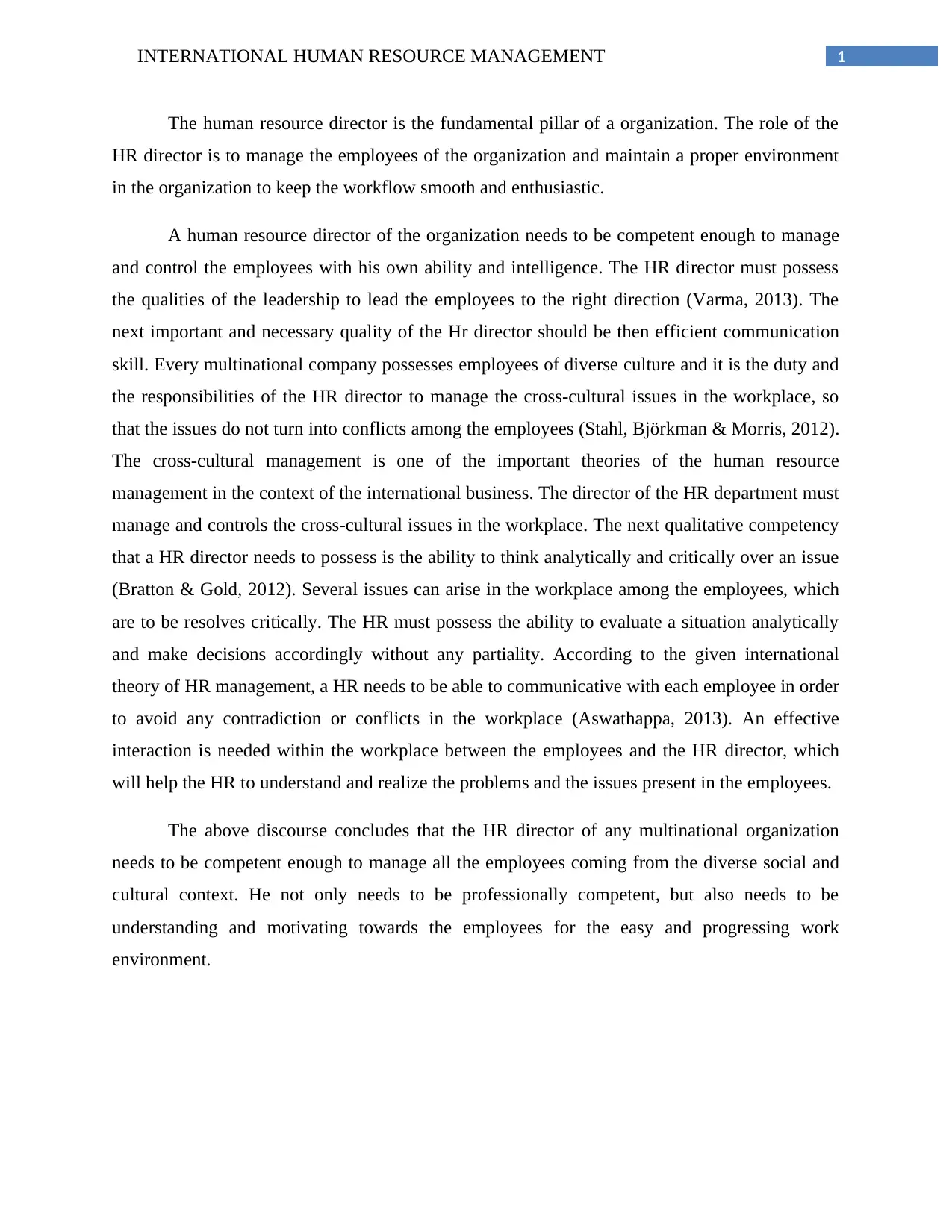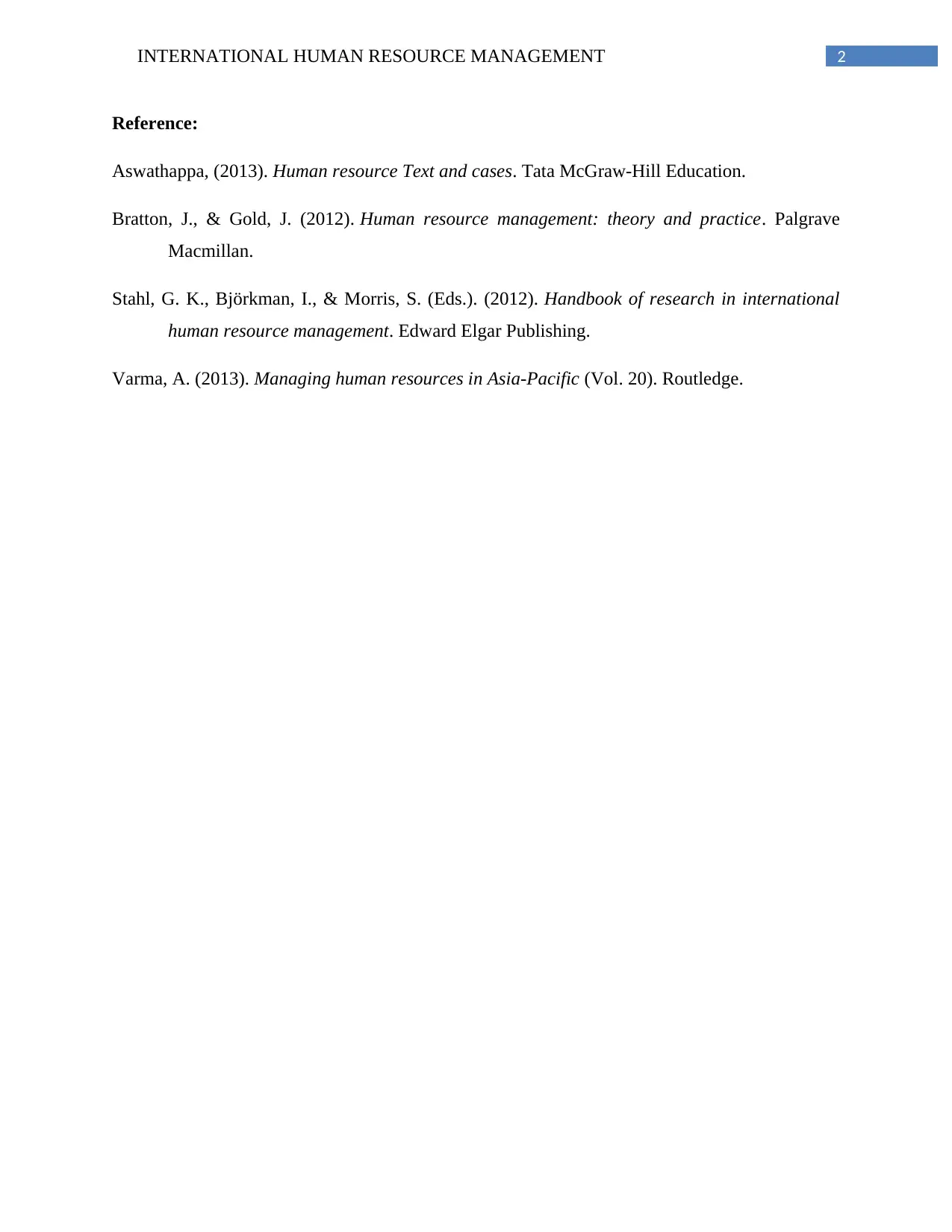International Human Resource Management Report: Course Name
VerifiedAdded on 2020/03/04
|3
|521
|35
Report
AI Summary
This report delves into the critical aspects of international human resource management, highlighting the essential roles and responsibilities of an HR director within a multinational business context. The report emphasizes the importance of effective communication, analytical thinking, and leadership skills in managing diverse workforces and navigating cross-cultural issues. It underscores the need for HR directors to understand and address the challenges that arise from differing cultural backgrounds, ensuring a harmonious and productive work environment. Furthermore, the report stresses the significance of employee engagement and the ability to resolve conflicts impartially to maintain a thriving and efficient workplace. The report concludes that the HR director must possess a blend of professional competence and interpersonal skills to foster a supportive environment for all employees.
1 out of 3










![[object Object]](/_next/static/media/star-bottom.7253800d.svg)